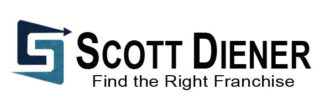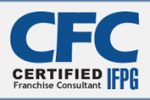You decide you want to be an entrepreneur. Where do you start? Start by deciding if you buy a franchise ownership opportunity or start an independent business. Owning a franchise isn’t for everyone. It requires strict adherence to someone else’s guidelines, product specs, and processes. This may pose a challenge for highly creative entrepreneurs who love scratch cooking and figuring out everything with an open wallet. Franchises offer a slew of benefits, from a proven replicable business model to built-in marketing support when they are a good fit to you.
Franchise Opportunities offer Mitigated Risk and Similar Goals.
Mitigate risk: The ability to mitigate risk is the most significant appeal to franchising. Franchisors continuously perform trial and error to perfect the formula and reduce risk. A proven system minimizes mistakes and the financial burden they bring. Statistics show that a high percentage of franchised businesses are still operating after five years. Where as many independent businesses fail within the first year simply because their mistakes and inability to scale fast enough cost money. Access to capital is much easier for franchise businesses because banks understand you are part of a system.
Similar Goals: A franchise feature is being a part of a uniform operation. All franchises share the same interior and exterior physical appearance, the same product, the same service. Additionally, they share product quality and overall customer brand awareness which drives franchisee equity throughout, until the day you sell.
Networking and Shared Resources are features of franchise opportunities.
Networking and support: Group Collaboration, benchmarking, fellow franchisees and head office support team offer huge benefits. Franchising lets you run your due diligence before buying. Build your line item P&L items, such as labor, rents and average expenses by talking with existing franchisees. Information for how to start-up the business is also provided. Peer to peer groups let everyone rise together to build brand equity continually. These groups may meet in small peer groups and at annual conventions so franchisees can come together to discuss best practices, share P&Ls and strategic objectives.
Shared resources: When you choose to buy a franchise opportunity, you get leverage economies of scale. The benefit comes from increased buying power for goods and services due to higher volume with suppliers. For example, negotiating bulk purchase prices for construction, vehicles, equipment and inventory is more efficient and lowers costs. Brand messaging and awareness is spread over a large network of franchise owners.
Independent businesses face the hurdle of attracting customers. These hurdles originate with starting from scratch on marketing and brand storytelling efforts. A franchise offers you proven brand name, intellectual property, marketing, recipes and systems. Franchises help you avoid mistakes already made by others within the organization.
You may have fears about franchise ownership. Here is a post to help you ease the fears and face the challenges head on: Franchising & Fear – a winning combination by Scott Diener. And of course if you have any questions, schedule an appointment to chat about franchise ownership and opportunities.







